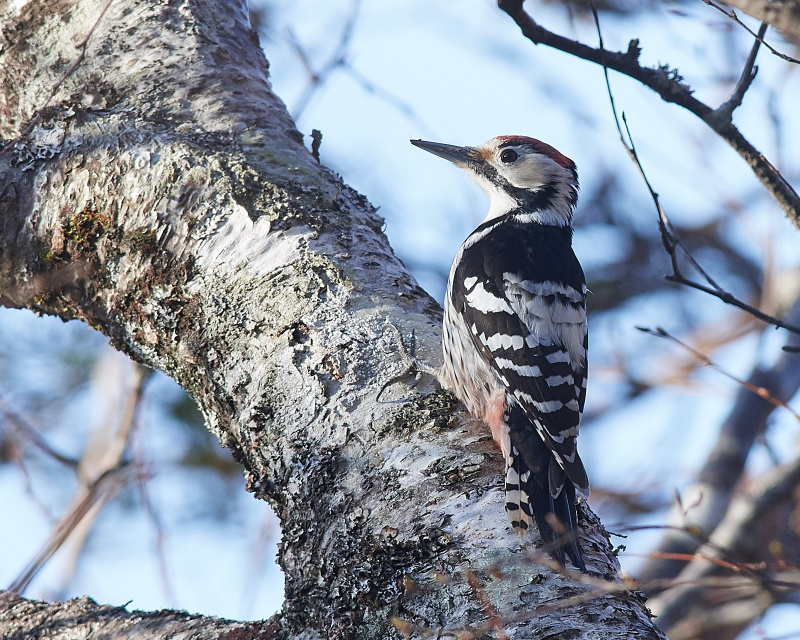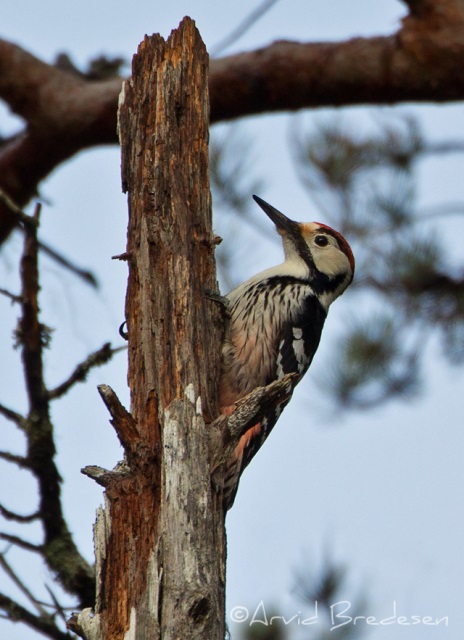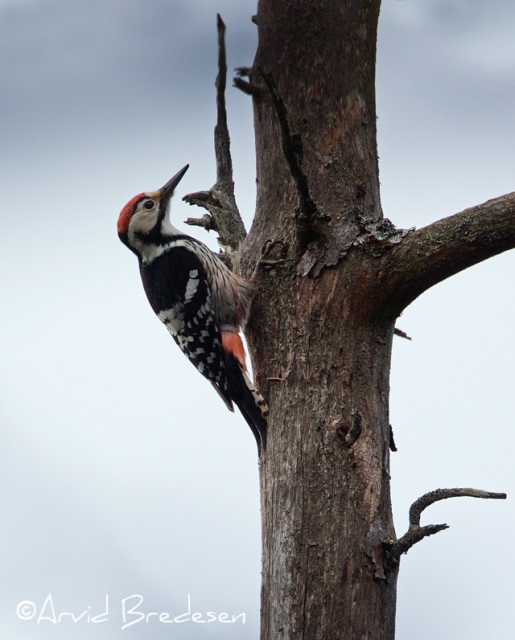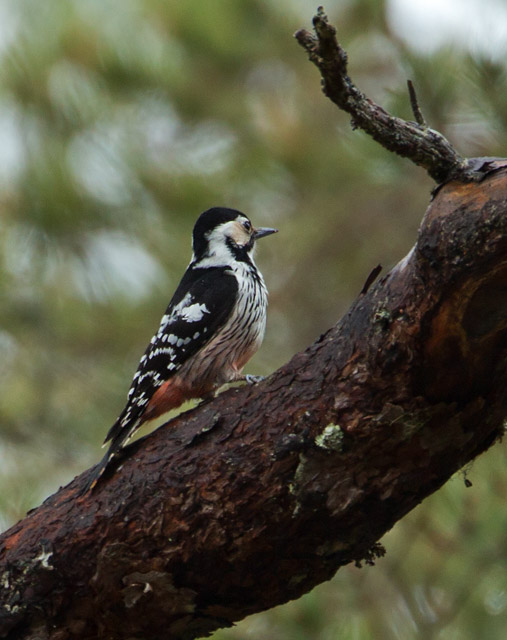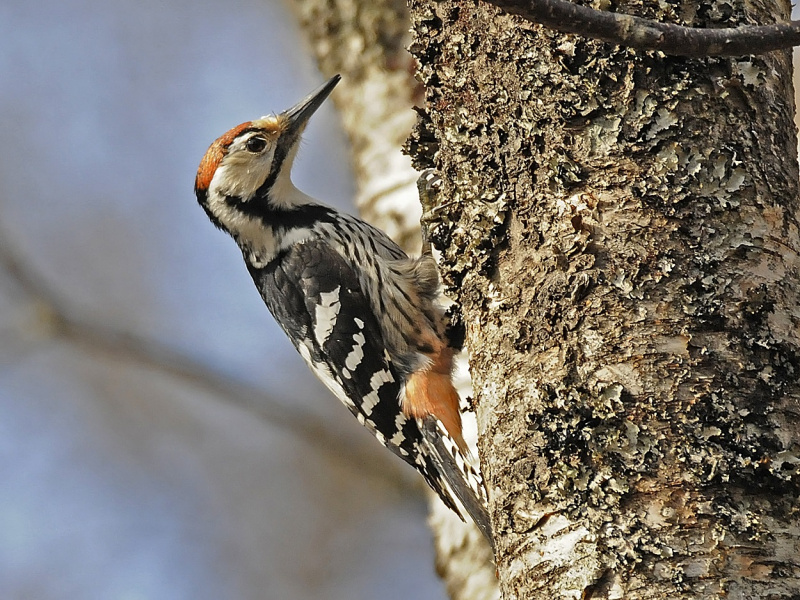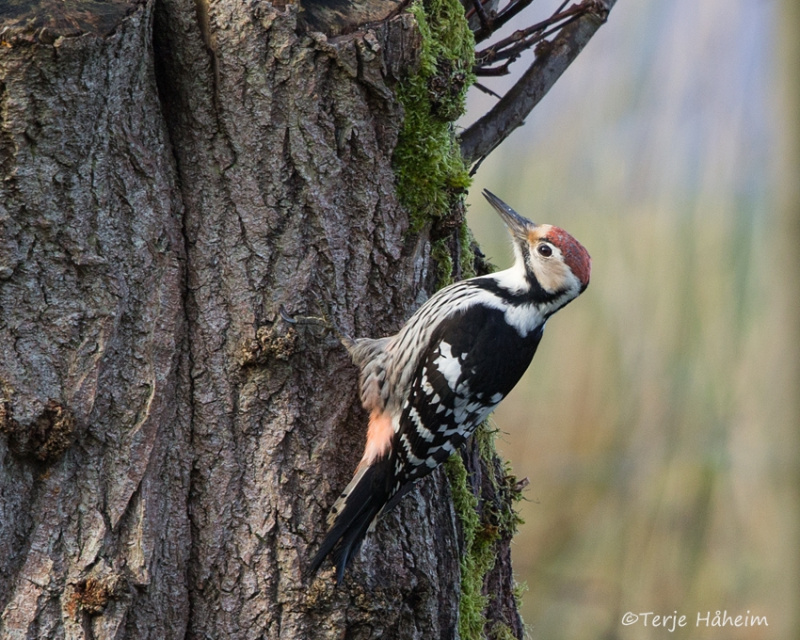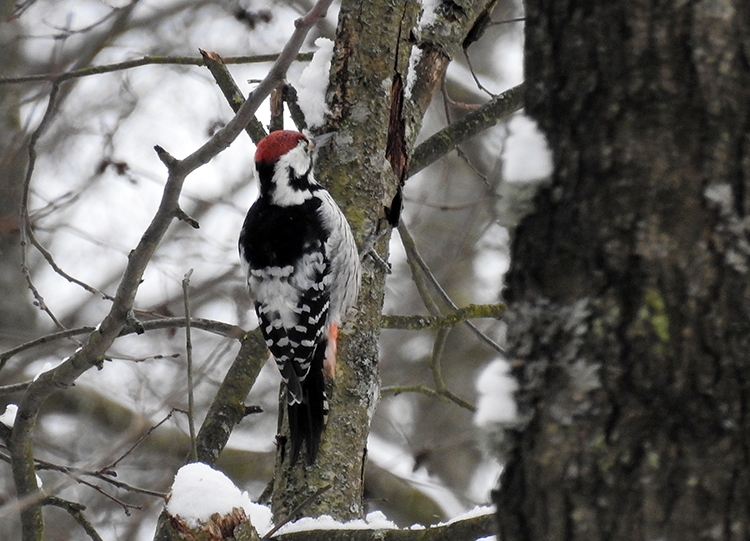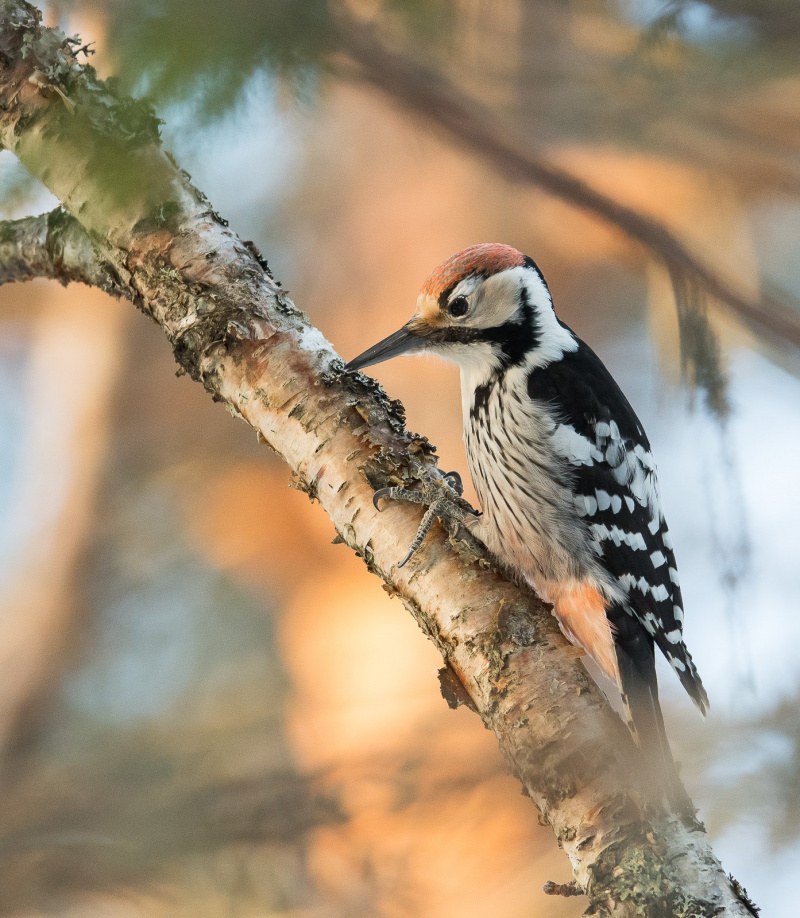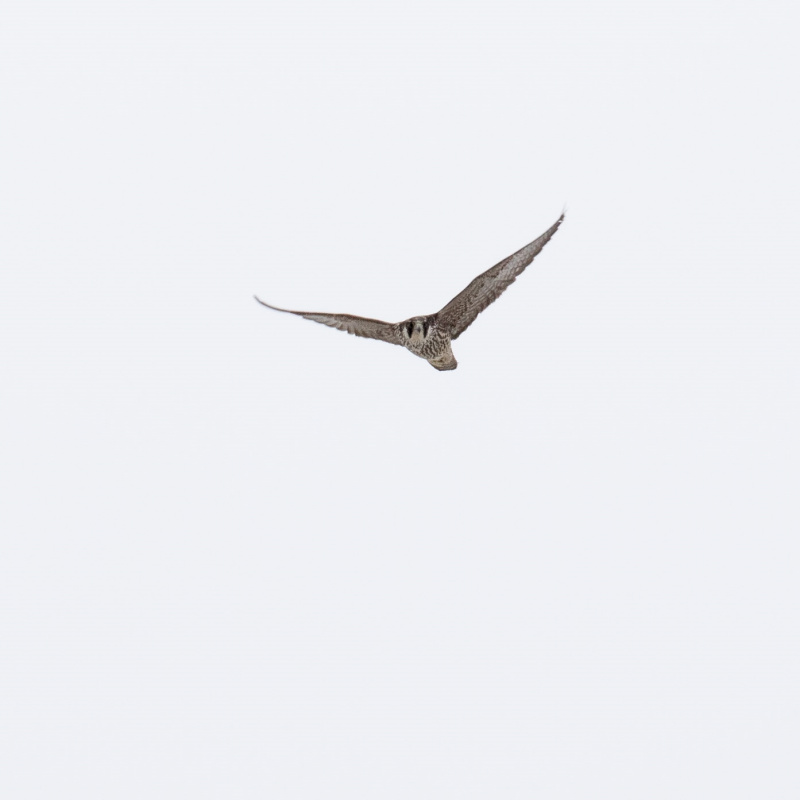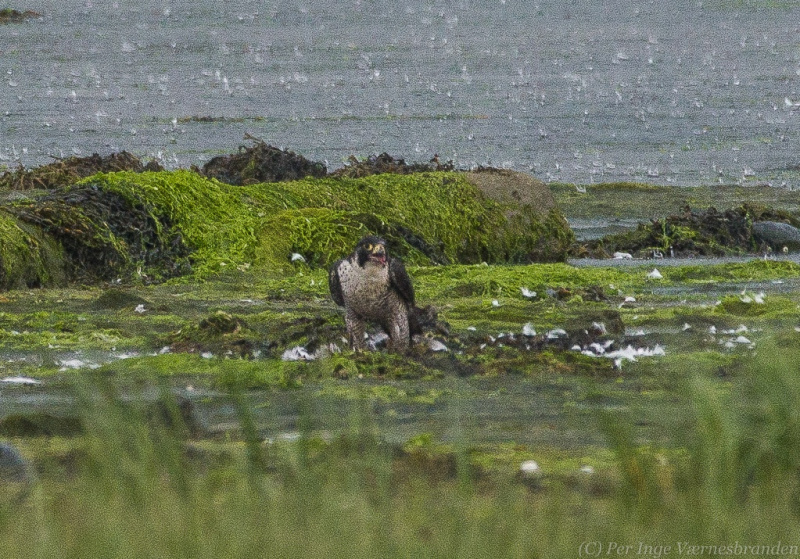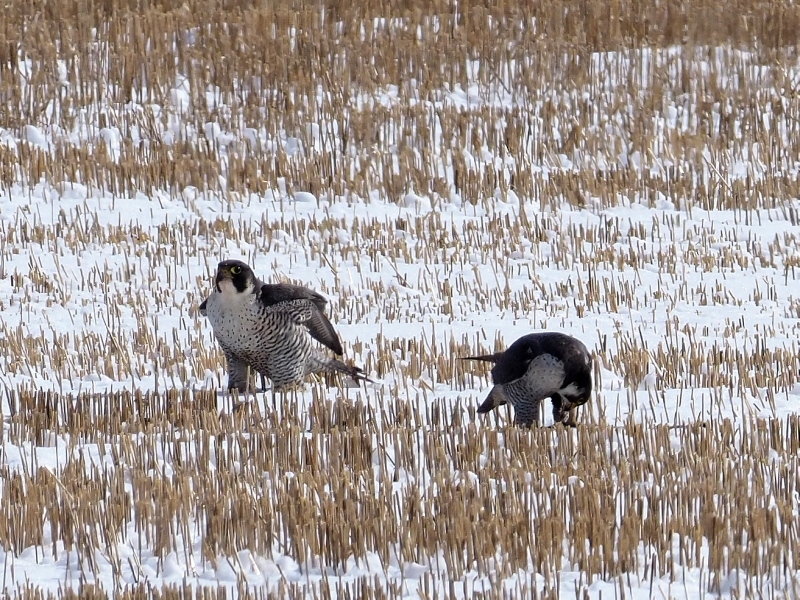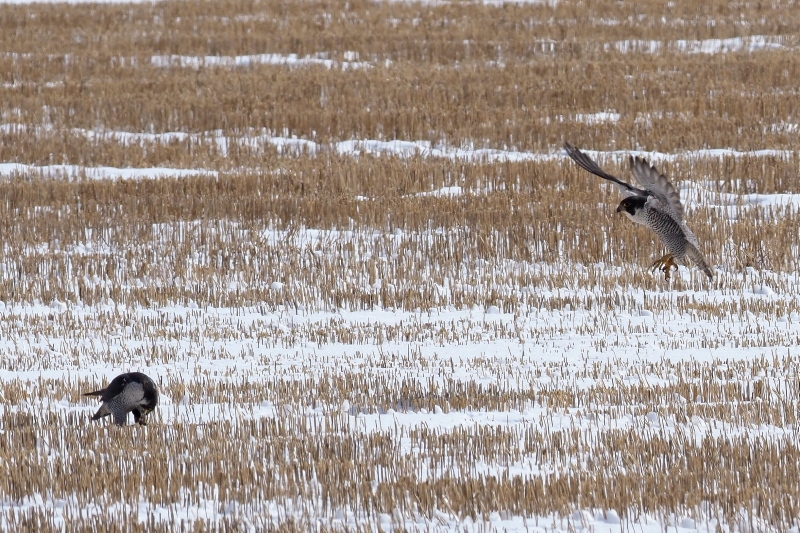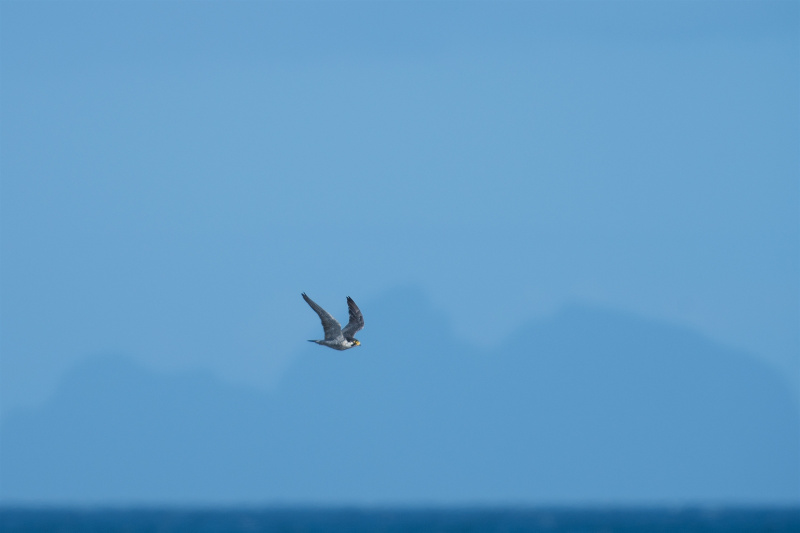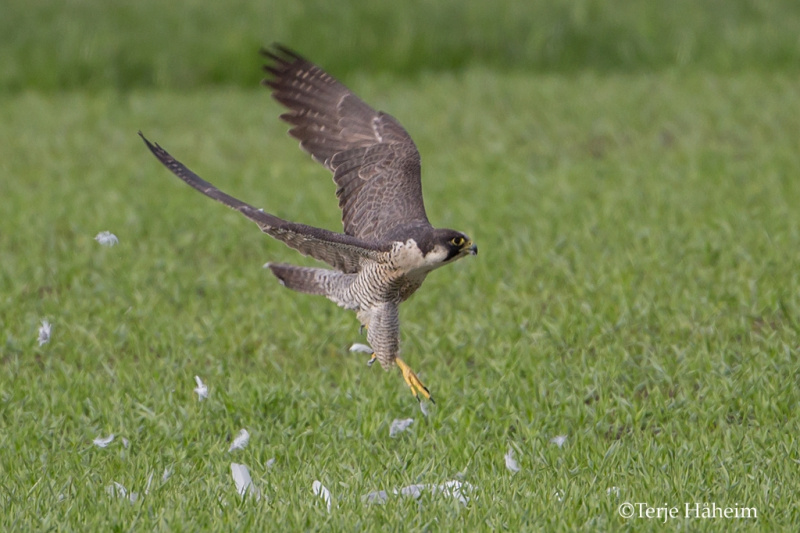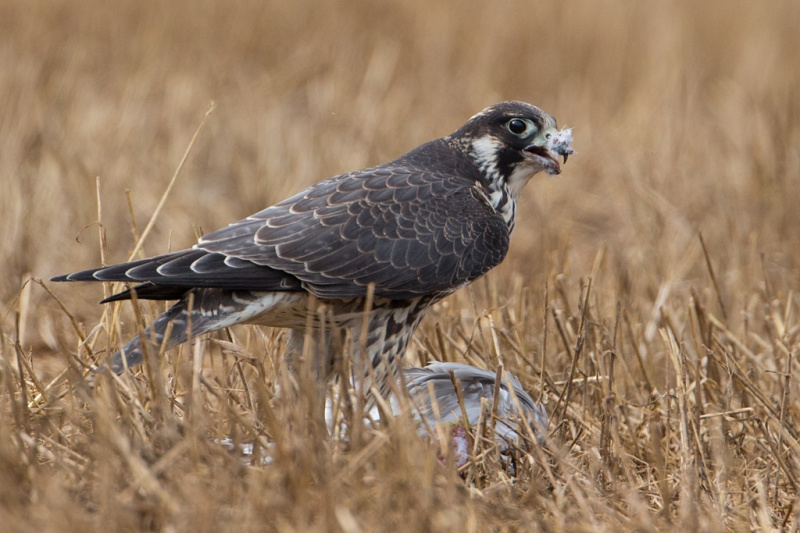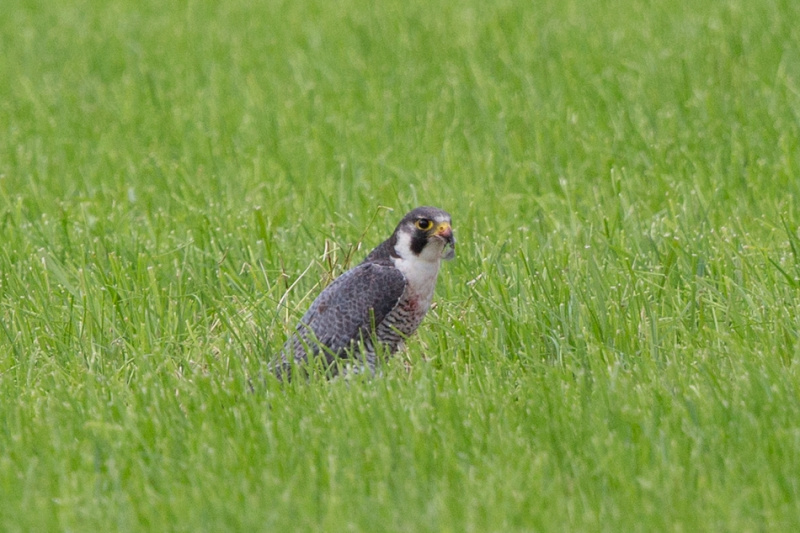White-backed Woodpecker (Dendrocopos leucotos)
Peregrine Falcon (Falco peregrinus)
Upper back strongly barred, lower back all white (barred in south-east Europe subspecies). Underparts streaked. Whole crown red in male. Vent pinkish red, not deep red as in Great Spotted, and less marked. Most likely to be confused with Middle Spotted Woodpecker, but is clearly bigger, has longer bill and black moustache stripe connects to base of bill. Easily recognized in flight due to strong wing-bars and white lower back.
Sound:Drumming noticeably longer and more powerful than Great Spotted, with accelerated ending (similar to Three-toed Woodpecker but faster). Contact call similar to Great Spotted, but slightly deeper and softer; "kjuk".
Drumming, contact call:
Distribution:
Wikipedia: map (se also Xeno-canto below)
Ecology:Birdlife ecology
Links:
Observation.org Latest observations
Image search Flickr NB! May give other species
CCLarge and athletic falcon. Adults slate-grey above. Underparts white with black barring. Head almost black. Juveniles with brown tone to plumage, coarse longitudinal streaking below and paler head. Differs from the smaller falcons by less pointed wings, heavier hips and short tail. Highly contrasting and broad moustache-stripe. Smaller than Gyrfalcon with a more compact silhouette. The wings are not as broad, and belly not as deep. Underside of wings evenly barred, without contrasting coverts. Flight-pattern can recall Fulmar, with shallow, stiff wing-action.
Sound:A harsh, drawn out "kiaaaa" with emphasised endings repeated in series. Much slower than Merlin, but higher pitched than Gyrfalcon. Also shorter, coarse warning-calls.
Alarm call:
Distribution:
Wikipedia: map (se also Xeno-canto below)
Ecology:Birdlife ecology
Links:
Observation.org Latest observations
Image search Flickr NB! May give other species
CCSounds:Recorded by Jarek Matusiak,http://www.xeno-canto.org ,CC license

 English
English Albanian
Albanian
 Armenian
Armenian
 Bulgarian
Bulgarian
 Catalan
Catalan
 Croatian
Croatian
 Czech
Czech
 Danish
Danish
 Dutch
Dutch
 Finnish
Finnish
 French
French
 Georgian
Georgian
 German
German
 Greek
Greek
 Hungarian
Hungarian
 Italian
Italian
 Latvian
Latvian
 Lithuanian
Lithuanian
 Macedonian
Macedonian
 Norwegian
Norwegian
 Polish
Polish
 Portuguese
Portuguese
 Romanian
Romanian
 Russian
Russian
 Sami : Lule sami
Sami : Lule sami
 Sami : North sami
Sami : North sami
 Sami : South sami
Sami : South sami
 Scientific names
Scientific names
 Serbian
Serbian
 Spanish
Spanish
 Swedish
Swedish
 Ukrainian
Ukrainian


